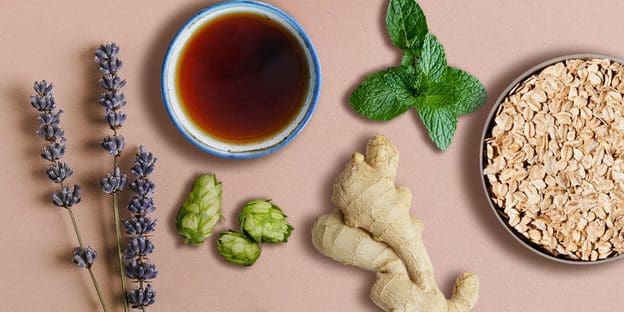Guide to octanol, a cannabis terpene
2 min read



Octanol is a type of chemical compound known as a terpene. It’s found in many plants, including cannabis. It may have health benefits and help your body absorb other compounds, including tetrahydrocannabinol (THC).
What is octanol?
Octanol exists in several plants, including:
- Lavender
- Hops
- Oats
- Ginger
- Tea
- Frankincense trees
- Cannabis
In nature, octanol helps plants fight disease. Its scent has notes of rose and lemon.
Octanol is a common ingredient in:
- Foods and beverages
- Perfumes
- Hygiene products
Want to save 30% on cannabis products?
Start your Leafwell Membership
Enjoy deep discounts at your local dispensary, in store and online. Why wait and pay more?
Get discounts!
Octanol benefits
Octanol comes with potential health benefits. But studies on its effects have mostly been done on animals and cells. More human studies are needed to fully understand its potential.
Reduces pain and inflammation
In a rat study, octanol was found to help lower inflammation in the brain following a stroke. A similar study found that octanol helped lower inflammation-related scar tissue in the brain after a minor traumatic brain injury.
A mouse study found that a combination of the terpenes octanol, linalool, and pinene can help ease pain when applied to the skin. It may also help reduce inflammation and swelling. However, the other terpenes likely contributed to these effects, as well.
Helps with essential tremor
Essential tremor is a health condition that causes uncontrollable shaking in your body for no apparent reason. One study found that octanol may help reduce shaking in people with this condition.
Helps with cystic fibrosis
Cystic fibrosis is a genetic health condition that causes thick mucus to build up in your lungs, pancreas, and other organs. It’s caused by a genetic mutation that impacts the function of a specific protein in the body that’s responsible for proper mucus production.
Octanol has shown some promise as a potential treatment for cystic fibrosis. One study found that it may help stimulate this protein, which may lead to more normal levels of mucus in the body.
Improves absorption of other substances
Researchers have found that octanol can help drugs absorb better through different kinds of tissue, including the skin and intestines. This may improve how well certain medications work for you.
In cannabis, octanol may help your body absorb THC more easily, increasing its effectiveness.
Octanol terpene in cannabis
In cannabis, octanol is considered a rare terpene. It’s only found in some cannabis strains. And strains that contain octanol tend to have very trace amounts of it.
However, octanol plays a role in the entourage effect of cannabis. This refers to the way that compounds in cannabis tend to produce greater effects when combined than when they are used alone.
Want to save 30% on cannabis products?
Start your Leafwell Membership
Enjoy deep discounts at your local dispensary, in store and online. Why wait and pay more?
Get discounts!
The bottom line: Although rare, octanol may boost cannabis’s effects
Octanol is a rare cannabis terpene that may have health benefits and help your body absorb other cannabis compounds. While no high-octanol strains exist, you may still benefit from the terpene when you consume strains that contain it.
To learn more about octanol and other terpenes in cannabis, contact a Leafwell provider who can guide you toward products that suit your needs.
Resources
- α-Pinene, linalool, and 1-octanol contribute to the topical anti-inflammatory and analgesic activities of frankincense by inhibiting COX-2. https://pubmed.ncbi.nlm.nih.gov/26721216/
- Development of 1-octanol as a novel therapy for the treatment of ethanol-responsive essential tremor. https://www.sciencedirect.com/science/article/abs/pii/S1545534306000915
- Evaluation of the use of partition coefficients and molecular surface properties as predictors of drug absorption: A provisional biopharmaceutical classification of the list of national essential medicines of Pakistan. https://pmc.ncbi.nlm.nih.gov/articles/PMC3232101/
- General anesthetic octanol and related compounds activate wild-type and delF508 cystic fibrosis chloride channels. https://pubmed.ncbi.nlm.nih.gov/14967738/
- Neuroprotective effects of gap junction blocker octanol on cerebral ischemia-reperfusion injury in rats may be associated with the alleviation of inflammatory response. https://pesquisa.bvsalud.org/portal/resource/pt/wpr-742989
- Octanol. https://www.sciencedirect.com/topics/pharmacology-toxicology-and-pharmaceutical-science/octanol
- Predicting drug permeability through skin using molecular dynamics simulation. https://www.sciencedirect.com/science/article/pii/S016836591830292X
- Trauma-induced reactive gliosis is reduced after treatment with octanol and carbenoxolone. https://www.tandfonline.com/doi/abs/10.1179/1743132810Y.0000000020
Get Your Medical Card
Connect with a licensed physician online in minutes.
Larger purchase limits Access to higher potency strains Save up to 40% on product taxes Enhanced legal protection
Frequently asked questions
Keep reading to find answers to commonly asked questions about octanol.


